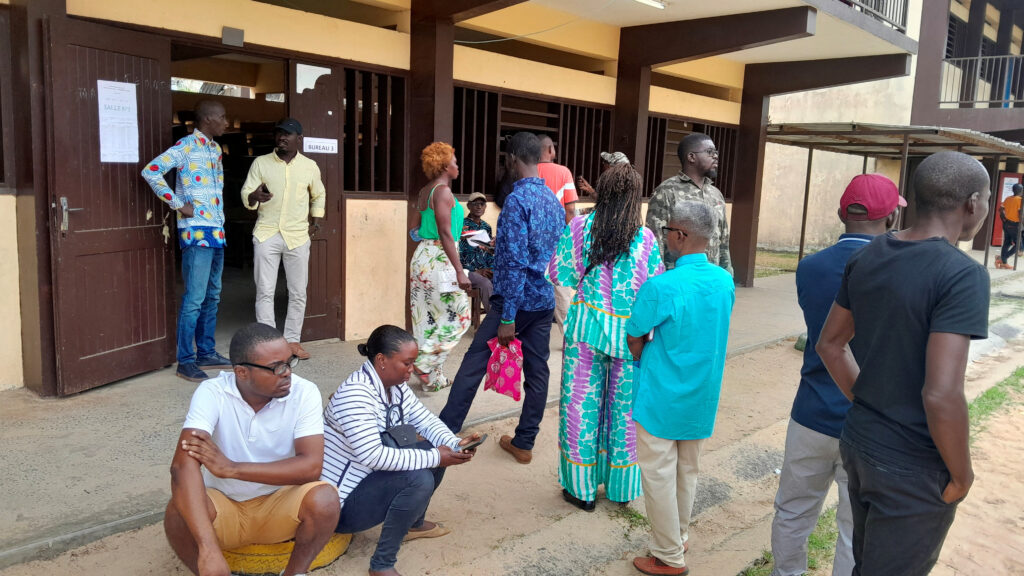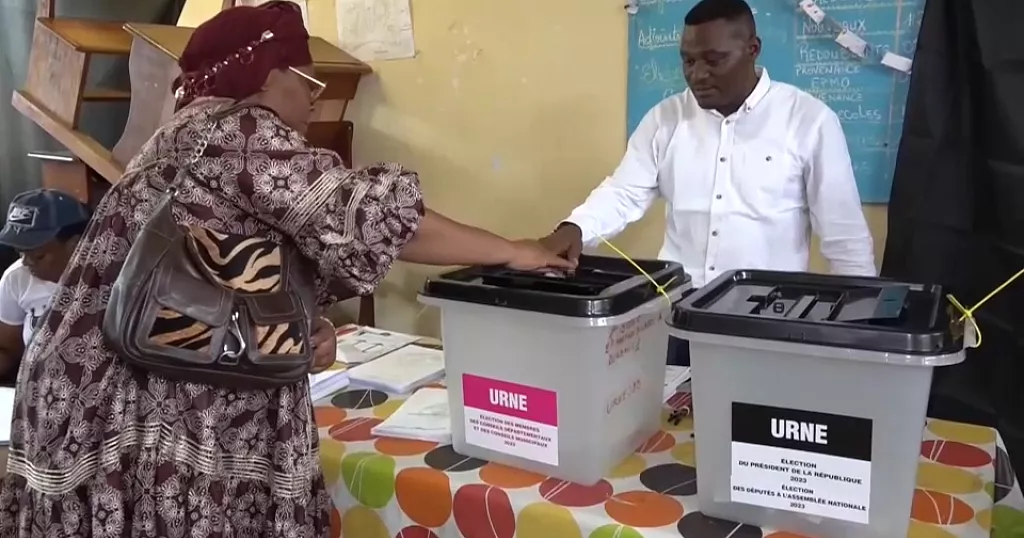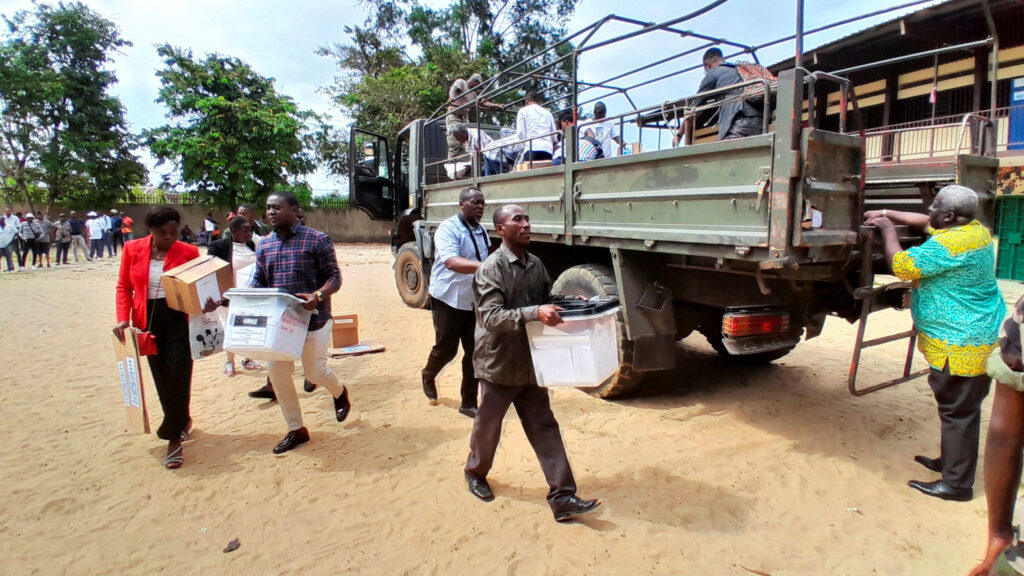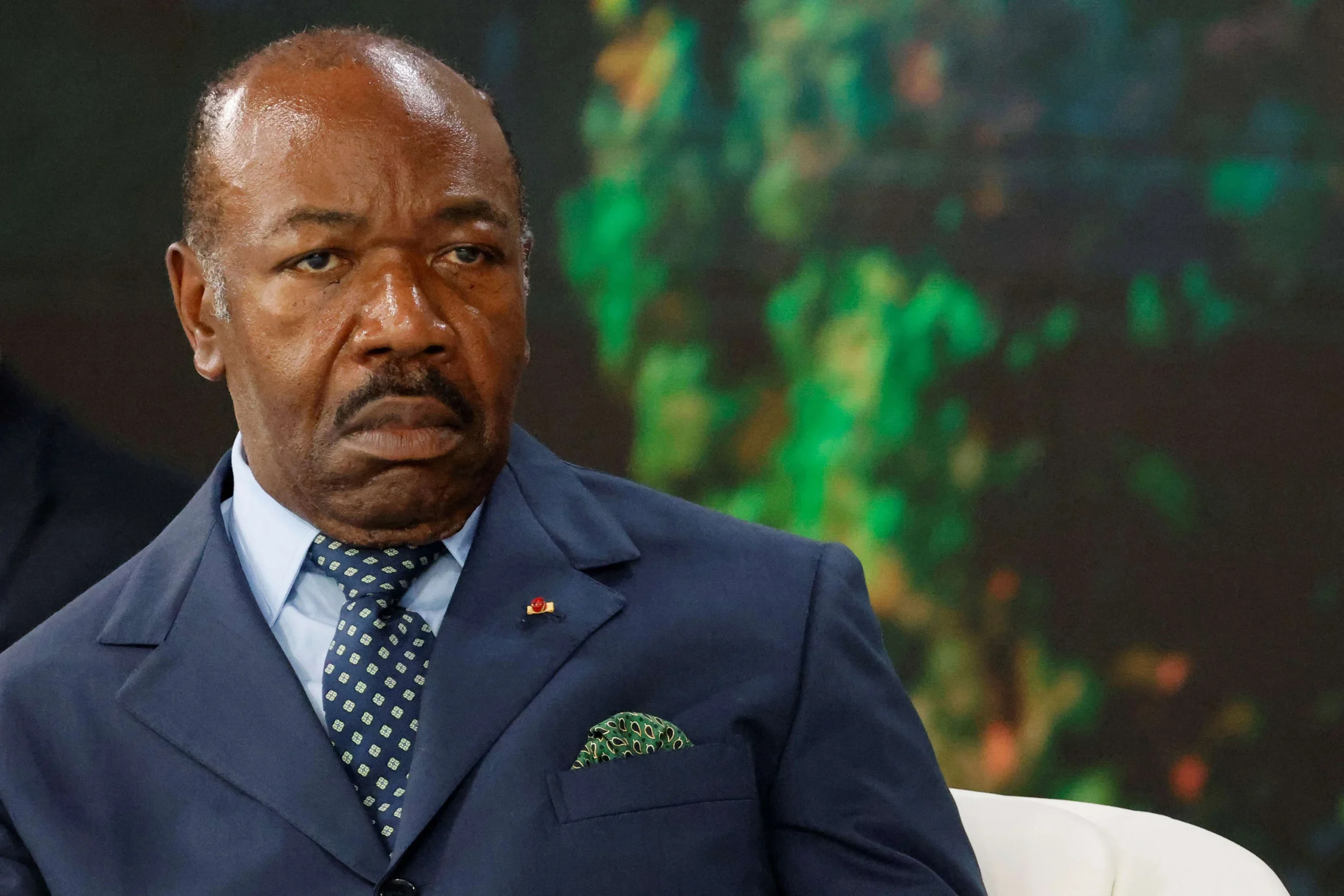Gabon’s government has declared a countrywide curfew and shut down the internet at night following the completion of important national elections. The country’s communications minister, Rodrigue Mboumba Bissawou, explained on state television that a nightly curfew from 7 p.m. to 6 a.m. was being put in place. He mentioned that internet access was being restricted indefinitely due to concerns about calls for violence and the spread of false information.

This announcement came after citizens voted for new local leaders, national lawmakers, and the next president of Gabon. The current president, Ali Bongo Ondimba, sought a third term in office. He comes from a political family that has been in power for 55 years, with his father leading the country for 41 years.
President Bongo, who is 64 years old, narrowly won his current term in 2016 amidst violent protests. This time, the opposition supported his main rival, economics professor Albert Ondo Ossa, just a week before the recent elections.
About 847,000 people were eligible to vote on Saturday. In the capital city, Libreville, voters were unhappy because some polling stations opened late. Despite voting being scheduled to start in the morning, many places didn’t open until 2 p.m. or later.

Authorities didn’t explain the reasons for these delays or give a timeline for announcing the election results. Ossa, who ran as an independent candidate, aimed to make changes to the way things were done. He talked about dissolving the National Assembly, revising the electoral boundaries, and arranging new legislative elections. His goal was to form a government that would tackle economic inequality.
Since Gabon’s return to a multi-party system in 1990, every election has ended in violence. After the 2016 elections, clashes between government forces and protestors resulted in the deaths of four people, according to official records, although the opposition claimed the number was much higher.

To prepare for potential violence after the recent elections, many people in the capital city visited their families in other parts of the country or left Gabon altogether. Some stocked up on food, while others increased security measures in their homes.

